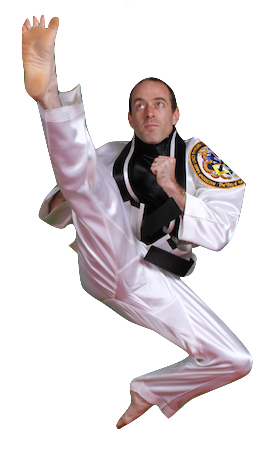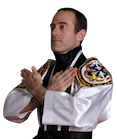
Living The Martial Way, By Forrest E. Morgan
In Forrest Morgan's formulation, one can be a warrior regardless of occupation. A warrior seeks excellence and is motivated by internal rather than external rewards. Moreover a warrior embraces a way of life, which Morgan calls the Martial Way (his italics). This embrace sets the warrior apart from others in society and shapes all that he or she does.
Living the Martial Way outlines approaches to becoming a true martial artist, not only by developing superior martial skills but also by applying the lessons of the martial arts to daily life. He advises martial artists to select a doctrine that suits their physical capabilities and defensive needs, but to remain open-minded in order to accommodate the benefits of other doctrines as well. He emphasizes that martial training is rigorous and all-encompassing. Living the Martial Way means training daily, and achieving a balance not only between physical training and academic study but also between exertion and rest.
In a particularly compelling passage, Morgan defends the traditional focus on forms against contemporary criticism that they do little to develop practical self-defense skills. In essence, Morgan argues that the practice of forms is a type of meditation. The goal in practicing form is to clear your mind so that you are focused on nothing but the execution of the movements. Some call this a "flow state," where performance becomes automatic and almost effortless, and there are no distractions. Morgan calls this mushin, or "mind-no mind."
Morgan provides practical strategic and tactical fighting advice. He also discusses the role of honor in modern society, the application of honor to revenge, and the importance of fitness. He provides a nice nutshell history of Zen Buddhism, Tao-ism, Confucianism and Shinto-ism and their relationship with the martial arts. Finally, he addresses the meaning of mastery and concludes, "The only goal truly worthy of a serious warrior's efforts is mastering The Martial Way itself."


